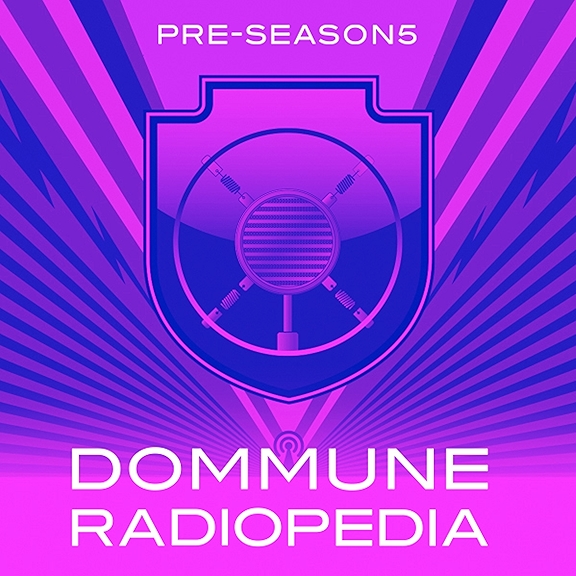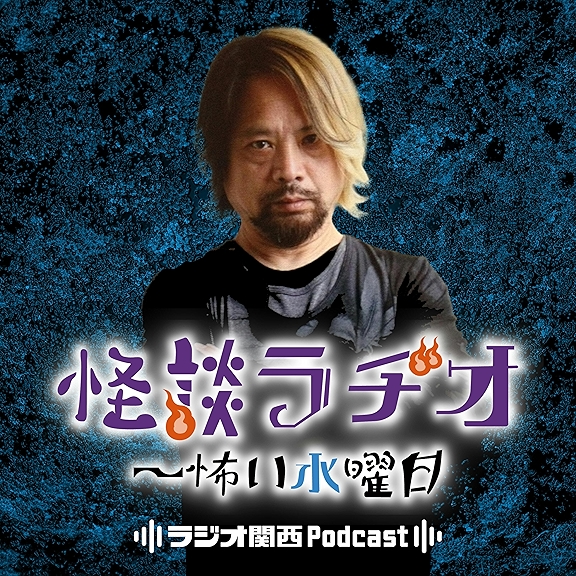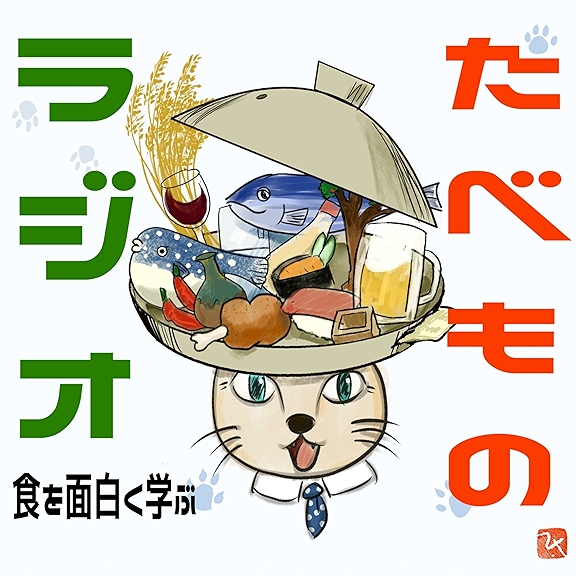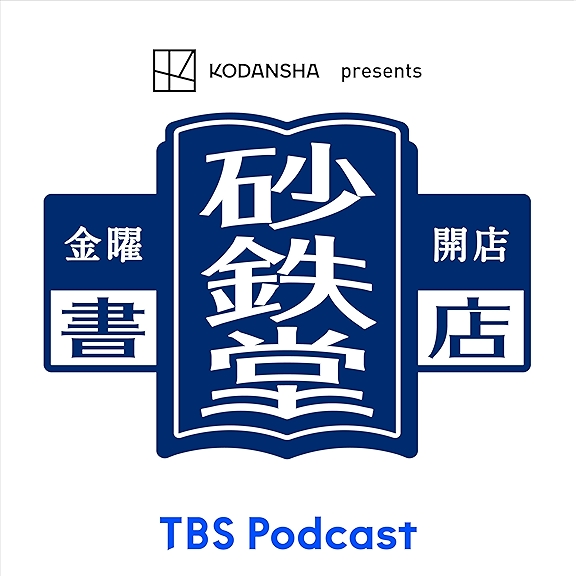
Episode 72 - Vampiric Influences on Marsupial Child-rearing (Writing Influences)
We Make Books is a podcast for writers and publishers, by writers and publishers and we want to hear from our listeners! Hit us up on our social media, linked below, and send us your questions, comments, and concerns for us to address in future episodes.
We hope you enjoy We Make Books!
Twitter: @WMBCast | @KindofKaelyn | @BittyBittyZap
Episode Transcript (by TK @_torkz)
[Upbeat Ukulele Intro Music] Rekka: This is We Make Books, a podcast about writing publishing and everything in between. Rekka is a published Science Fiction and Fantasy author, and Kaelyn is a professional genre fiction editor. Together, they'll tackle the things you never knew you never knew about getting a book from concept to finished product, with explanations, examples, and a lot of laughter. Get your moleskin notebook ready. It's time for We Make Books.
Kaelyn: My sister just finished reading the Grisha trilogy. And she was, of course, more of a fan of the Six of Crows after reading that. But one of the things she messaged me- she was like “yeah, the ending was kind of whatever, but it is very clear that this person was reading Harry Potter when they wrote this.”
R: [laughs]
K: And I said “Yeah, that definitely comes through.” She gave me this whole list of like, book two is basically just The Order of the Phoenix, and the end battle with all of the Grisha and the stand downs, all this stuff, and I was like “Yeah, I guess you’re right.” To be honest with you, I kinda limped through the end of that book, I wasn’t thinking about that too much. But anyways, it got me thinking about influences in writing and how writers are influenced and how in some cases that’s something that we’re like “Yes! You can tell that this writer was influenced by such-and-such, and they weave it so beautifully into their story.” And sometimes you get my sister calling me to complain about how she basically just read Harry Potter with Russian witches.
R: So was your sister accusing the author in any way of plagiarism?
K [overlapping]: Not plagiarism.
R [overlapping]: As a reader I’m curious, like how the reader perceives it when it’s that clear when someone’s been influenced.
K: I should’ve asked her before we started recording this - and this is something we’ll get to in there - I couldn’t tell if my sister was accusing the author of laziness or unoriginality.
R: Okay.
K: That’s one of the things I wanted to talk about today as we’re talking about influence. What is influence, how are writers influenced? How’s the best way to leverage and utilize that influence? And when does influence cross into the realm of the negative? When is it no longer praise worthy? When is it, for instance, lazy, contrived, unoriginal, or, in worst case scenario, bordering into plagiarism?
R: Yeah, because that’s a tricky thing - if we always wrote a completely original story, you wouldn’t have something like Joseph Campbell’s The Hero's Journey. Because we wouldn’t have a set format that a story would take. So when somebody accuses a fantasy book of being “Star Wars with elves,” well, Star Wars was a Greek epic in space.
K: Oh, I would’ve called it a Western.
R: Okay fine. [overlapping] I mean, people have called it a Western.
K: [overlapping] I mean, both work. Both work. [laughs]
R: Yeah, but I’m just saying, The Hero’s Journey, Joseph Campbell is, he’s studying the ancient literature, so that’s why I decided to say Greek. But if we could always write something that was completely original, there would be no way to study literature with comparisons and contrasts. There are always going to be parallels between stories written in a similar culture by people who are writing in a similar society. Like, a hundred years apart, you would not necessarily detect the influence of Harry Potter in the Grishaverse. But they’re not written a hundred years apart - it was maybe a decade, probably not.
K: I’d be curious to go back and try to time out when these books were being written, and when that coincides with the release of the latter half of the Harry Potter books. But anyways, real quick, I’m big into definitions, so let’s talk about definitions. Influence is the capacity of something - a person, a situation, a circumstance - to have an effect on another person, on the development of the situation, on the behavior of someone or something. Or, in some cases, even the effect itself. You’ll notice there that influence is kind of framed as both proactive and reactive. You can influence something, or you can be influenced. We’re talking today about being influenced.
R: And we’re not talking about Instagram.
K: [laughs] Oh, God. You know what’s funny? I went through this whole thing and I didn’t even think about the concept of influencers, and now I’m depressed.
R: Because you didn’t or because now you are?
K: [laughs] Because now I am.
R: Okay. I’m sorry. I take it back, I didn’t say anything.
K: [laughs] So, writers don’t write in a void. It’s sort of a reverse Heisenberg principle, which is “whatever you study will also change.” Whatever you read changes you, or whatever you consume changes you. So, writers don’t write in a void. If you took a baby and raised them in a box with no interaction with the outside world whatsoever, well, to be honest I’m not sure they’d be capable of putting together an interesting story because they’ve had no influence.
R: You know what’s funny, that’s why I don’t have kids. Because I thought about this kind of thing frequently in high school, like “what would happen if you raised a child in a padded room? And you never interacted with them, and they never saw another human?” So you’re welcome, world, that I have not raised any children. Those children are welcome because I did not abuse them in such a manner.
K: [laughs]
R: But it’s good to hear that someone else has had these thoughts. Although, Kaelyn and I did originally bond over the fact that we’re terrified of the idea of raising children.
K: Pregnancy is just -
R: And pregnancy. It’s not for everybody. I recognize that for some people it’s a beautiful process, but for Kaelyn and for me, it is body horror.
K: Yeah. Yeah, I mean, there’s an entire nother skeleton in your skeleton. [laughs]
R: Yes. And it’s growing. [overlapping] It’s getting larger.
K [overlapping]: It keeps getting bigger.
R: And if you’ve never seen an MRI of a baby’s skull, there’s a lot of teeth in there.
K: Yeah, also they’re squishy.
R: Well, the MRI doesn’t necessarily show that. It just shows all those chompers, waiting. Waiting.
K: Yeah. There’s a lot of extra teeth in there.
R: Okay. [laughs] Where were we going?
K [overlapping]: So for our writing-
R [overlapping]: A child raised in a padded cell would probably write a different kind of story than somebody who’s been exposed to Harry Potter.
K: Yeah, and if you take out every third word, it’s their plan to destroy the world with their laser beams.
R: This reminds me of the book The Artist’s Way. I think it’s a month-long program designed to improve your creativity and I think maybe even to come up with… it’s like NaNoWriMo but it’s very classist and elitist.
K: [laughs]
R: But the first thing it asks you to do is swear off all media for the month.
K: Okay.
R: And I put the book down right there.
K: [laughs]
R: Because I was like, that is literally impossible. I was in art school at the time, so I could not promise that I wasn’t going to have to look at media. And also, this was written in 1992, before anybody was logging onto the internet daily.
K: Yeah, it was much easier to walk away from media for a month.
R: And I was trying to read it, I think, in 1999 or 2000, and it was even easier, at that point, to walk away from media than it would be now.
K: Yep.
R: But, yes, it’s called The Artist’s Way: A Spiritual Path to Higher Creativity by Julia Cameron. And I imagine that Julia Cameron has a very nice life and is able to unplug from media whenever it is convenient for her to do so.
K: Well, in 1992 that meant “turn off the TV.”
R: Right, it meant “don’t pick up a newspaper” or, you know.
K: Yeah.
R: In 2016 they re-released a 25th anniversary edition, and I can’t imagine they did much to it, but it really probably needed a lot of re-examining to -
K: Yeah. It’s -
R: - to even be relevant in 2016, I can’t even imagine.
K: Now, was the purpose of this to do a detox of influence from your life?
R: Yes. That is exactly what it was, to avoid influence for the month and find out what you write, not what the world around you influences you to write. But I think in her case, she was treating world influence and media and current events as a negative.
K: Mhm.
R: And I would argue that if you are responding to the world around you, then the politics of your creativity is going to be more relevant and more well-informed. And I think that’s a good thing.
K: Well, yeah. And this is something that we can certainly talk about with influence - current influence versus longevity. You’ll see a lot of writers that go out of their way to not incorporate things that might later be considered an anachronism in their writing, so that they’re not influenced by that.
R: Mhm.
K: So that’s another good example of influence. So, let’s get the elephant in the room out of the way here: influence is not copying. As we were talking about, writers don’t write in a void. You’re absorbing everything that you interact with and consume every day, and, whether you know it or not, it’s influencing and incorporating itself into even your way of thought.
R: You hear that? So if you were following an Instagram influencer, do not copy everything they do.
K: [laughs] Yes. Please don’t. But, again, it’s the reverse Heisenberg uncertainty principle. Whatever you’re consuming changes you. There are entire PhD programs dedicated to studying and understanding the influence that certain parts of literature have had on larger parts of literature. Influence is not a bad thing. In many ways, it’s a scholarly pursuit. Go to any Wikipedia page for any sort of well-known novel, and I guarantee you there's going to be a section in there that says “Influence.”
R: Oh yeah, yeah.
K: And it’s going to be a couple paragraphs talking about the history of the genre, or the subject material leading up to this. Influence is, apart from being an important part of writing, an academic pursuit. So all of that said, we are talking about influence in a very positive way here. We’re saying it’s great to read things, and to consume and internalize them so that this can help enrich your writing. Something that you really enjoyed, something you thought was maybe unique, or something that you were like, “Oh, what if I applied that to a character that I already have?” That’s a good thing. I think it enriches your writing, I think it shows layers and growth, etcetera.
K: That said, sometimes influence goes the opposite way. [laughs] Sometimes you’ve read something and you’re like, “this is terrible,” or “this was such a ridiculous ending,” or “I hated that this happened.” And that might compel you to go through your manuscript and scrub absolutely everything having to do with that. The whole point is that whether you mean to or not, you are going to be influenced by external components in your writing. You could never read anything else, and you will still be influenced by things in the world just by existing in it. But we are talking more about influences in writing here, so we’ll stick with that.
R: And we assume that you are being influenced by books because, as we say, if you want to be a writer you need to also be a reader. So we’re telling you, go read widely in your genre, and part of that is that we expect you to absorb some of those elements and some of those styles. On a conscious level, we want you to look at the covers, we want you to look at the themes and the tropes and everything like that, but we also expect that on a subconscious level that’s going to influence you and hopefully make you a better writer within your genre.
K: And if you read a lot within your genre, you will start to notice trails of influence yourself. If you read a lot of - especially maybe a really niche kind of fantasy or science fiction genre, you’re going to be able to chronologically put some things in order, like “Oh yes, I can see that book A came out at this time, and then three years later this book came out, and there are certainly elements from book A that I can see coming through in book B even though they were written by different authors.”
K: So, I was telling Rekka before we started recording–I went down a little bit of a rabbit hole with this, because for reasons unbeknownst to me and possibly the influence of vampiric elements, I, for whatever reason, picked up my copy of Dracula off the shelf and I’ve just been flipping through random parts. And then we were talking about doing this, and I was like, vampires are a really really good example of influence through literature. They’re something that has always been around - the Mayans actually had a god that was basically a vampire, even though they didn’t acknowledge that, bat wings and all. And there’s something that–I think you’d be hard pressed to find a significant culture of any sort of longevity from history that didn’t have some sort of mythological being that displayed vampire-like qualities.
K: In the late 1700s, early 1800s, though, there was the vampire craze in western Europe. There were a lot of short stories and things written about vampires, even though they’ve been codified as part of the mythos for a long time. But even then, they were sort of holding up the folklore and traditions of vampires–they were reanimated corpses, they were bloodsuckers that came out at night to drain people of their very lifeforce. In some cases, actively rotting bodies, hunched back and demonic looking, claw-fingered and fangs and scary eyes. A lot of this was the traditional folklore. Then we start getting into sexy vampires. [laughs]
R: [laughs] I was just going to say.
K: [laughs] And there were a couple specific novels that did this. In 1819, John Polidori published a short story called The Vampyre, and this was the first one where the vampire was more of a character rather than just a mindless bloodsucking dead creature.
R: Right. This was a vampire worthy of Bela Lugosi’s eyes.
K: Oh, no one’s worthy of Bela Lugosi’s eyes. [laughs]
R: You know what I’m saying.
K: I know, I’m teasing. So, it was very popular. So then, a lot of vampire short stories and short novels were coming out where the vampires were getting a little more sophisticated, and all of these were drawing influence from Polidori’s short story. It was a very successful short story. So then, in 1872, an Irish author named Joseph Sheridan [with a mock-French accent] Le Fanu - I’m assuming it’s French which is why I did that accent - published Carmilla, which was a fantastic novel. And this is, I would say, probably a turning point where vampires are unabashedly being associated with a sexual element at this point. It has a not-very-subtle vampiric lesbian... stalking, I guess, going on through this book. It’s fantastic, it’s not that long. If you ever get a chance to read it, it’s great.
K: And then of course, a couple decades later in 1897, we come to Bram Stoker’s Dracula. I should, by the way, say that Bram Stoker and Joseph Sheridan Le Fanu were both Irish. Ireland had a shockingly strong folklore of vampires. In some cases they were fae, which is a whole different category of supernatural elements in Ireland, and in some cases they were just reanimated corpses. Anyways, then we get Bram Stoker, who of course gives us Dracula. And this is considered the preeminent vampire guideline bible, if you will. I think when most of us - granted, Rekka and I are older millennials, but -
R: [laughs] How dare you?
K: I think the first vampire we heard of was Dracula.
R: Mhm.
K: I actually remember, growing up, that there was a kid in my neighborhood who just thought vampires were called Draculas.
R: Yeah. I think that was probably a… Not that I thought Dracula was a noun, but I never expected Dracula to look the same way twice.
K: Yeah. Yeah, Dracula was just like - Dracula, vampire. They were interchangeable.
R: Mhm.
K: And that’s how synonymous this became. Now, look at all the stuff that lead up to this in order for us to get the seminal vampire novel of the time. Stoker was absolutely influenced by all these novels that came before. Something else that’s really interesting that Stoker was influenced by is the sexual component of vampires in this. Like I said, that came through hard and strong. Well, maybe I should say most popularly with Carmilla. Here’s something else really interesting about Stoker: he was probably gay. It’s difficult and inappropriate to go back and retroactively categorize people these ways, but there’s a lot of very strong… I’m trying not to say “homoerotic,” I’m trying to say… There’s a lot of very -
R: Queerotic? [laughs]
K: Yeah, there’s a-
R: There’s not a queer person in the universe that will argue this point with you.
K: Yeah.
R: I think the LGBTQIA+ are very, very ready to claim vampirism.
K: [laughs] Absolutely. And that’s a great part of the influence of this. Some of Stoker’s best friends were Oscar Wilde and Walt Whitman. Actually, I believe Stoker either started writing or finished writing Dracula right after Oscar Wilde was imprisoned, and they were exchanging letters while he was in prison.
R: Mhm.
K: You have to keep in mind, this was the mid-Victorian period, there’s very repressed sexuality, but there was also this burgeoning underground masculine sexual component to it, where everyone -
R: See people, this is what happens when you don’t let people reveal their ankles.
K: Yes. Yes, exactly. [laughs] So, one of the things through Dracula is this secretiveness, this sense of penetration. Not only the fangs in your throat, but a lot of them get into your head and screw with you that way. This was not something we saw in previous iterations of vampires, who were gross, for lack of a better term. [laughs]
R: [laughs] Yeah.
K: So, this influence comes through in a lot of different ways. And as I’m talking more about Dracula I can say like, “Okay, well there’s a lot of very… what we would now consider queer sexual elements that we see in Dracula, coming through with the relationship between Dracula and Johnathan Harker and Dracula and Mina.” But there’s also the influence of other writers who were starting to make vampires actually people, rather than Nosferatu-style monsters.
R: Right.
K: Dracula, I would argue, then in turn really helped influence the next generation of common horror. At that point we’re getting into H.P. Lovecraft and existential horror. Lovecraft, who, by the way, wasn’t quite a contemporary of Stoker’s, but was very aware and actually wrote some reviews of his writing. He didn’t really like a lot of it. [laughs] I would argue that that was probably part of what influenced Lovecraft: it was a hard turn from these very sterile, white-marble, gothic horror novels to a lot of raw, and ocean, and dark mold, steam spaces.
R: You can literally write the sentence “I can’t describe this.” and people are like “Woo, that is scary.”
K: Yeah exactly. So much of Lovecraft is like, “it’s too horrible to describe!” but it’s like “Yeah, but can you tell me anyway?” [laughs]
R: You mentioned earlier that an influence can be “I don’t want to do this.”
K: Yes.
R: So, here we are. This is Lovecraft saying “Well, Stoker wasn’t racist enough for me, so I’m gonna write my own thing.”
K: [laughs] Oh, God, Lovecraft. It’s so hard to read some of that stuff. [sighs] Psychologists would be better at trying to figure out Lovecraft’s influence than me, I’m certainly not going to. To say the man had issues is an understatement. He was more of a collection of neuroses formed into a human. Anyways, this is just something I was thinking of as a pretty-easy-to-track set of influences. We go from vampires being very loosely defined and having inconsistent characteristics based on what region the stories are being told in, to some stories published that codify certain rules about them, to their evolution from “Eww, it’s a rotting, blood-drinking corpse” to “Huh, maybe I’d like date that person.”
R: [laughs] Maybe I would like those lips on my bare neck!
K: Yes, exactly. Which is a pretty interesting leap that really did not take that long to get from point A to point B. But all of this was just building on influence and influence, after that.
R: Yeah, all you needed was for one author to pick it up and go, “What if vampires, but sexy?”
K: [laughs] Yeah. You know what’s funny, we have this sort of modern-day depiction of Dracula as a very suave, debonair… what’s the word I’m looking for? High-society type person.
R: Sophisticated.
K: Sophisticated, yeah. In the novel, he is those things a little bit, but he is very off-putting and he is... weird to look at, I guess I should say.
R: Yeah, there’s that first scene where Johnathan is eating in front of him, and you definitely get a vibe that this dude is not right.
K: Like, he’s talking about his hairy ears. [laughs]
R: [laughs] Yeah.
K: His weird skin, he looks ill, as if when he’s making his way to the castle all of the peasantry crying and pressing crucifixes into his hands wasn’t red-flag enough for him.
R: No, no, no. It’s just a quaint little village, this is the thing they do. There is the aspect of vampirism having the power of glamour, and I think this is probably the most effective display of it. The way that he’s describing Dracula, there’s nothing attractive about this man, and yet.
K: He’s very drawn to him.
R: Mhm.
K: And he wants to help him.
R: As is Mina. [laughs]
K: And Lucy, and all of them. So yeah, vampires. Great example of influence in literature over the course of a relatively short time, shaping something that we now consider to be commonplace.
R: Mhm.
K: We’ve even narrowed it down farther. One of my favorite things about Dracula is, there’s nothing that necessarily says he can’t go in the sun in that book.
R: Right, right. [laughs]
K: It’s just that he has no powers after noon, I think, or he loses his powers at sunrise. So he can be outside, but he’s just a regular guy at that point.
R: Mhm.
K: So, obviously things continued to change and evolve there, the “no going out during the day” is held over from the much older vampire myths. Anyways. So, all of that said, how do we see influences in writing? When can we pick these out? One of the obvious is the story itself, the plot. Maybe some story arcs.
R: I would argue that people tend to pick it up faster when it’s a similar setting. When it’s the worldbuilding, I think people notice it more.
K: Okay.
R: And I think, again, plot arcs and character arcs are things that we do have to recycle.
K: Absolutely. I think it’s rare these days to see completely original, never-before-imagined setting. In terms of world-building, both the world itself, and in my notes here I put “world systems.” Anything from the way magic functions, or government functions, or society functions. There’s only so many ways you can organize people, essentially. [laughs] So there may have been something that you came across and you’re like “Oh, that’s interesting. What if I did this instead?” The characters- anything from the archetypes and tropes of characters to their storylines and their redemption arcs, or even just the relationships, how they interact with each other. How the characters are broken out either into family groups or groups of friends or hierarchies within that. I think we see that a lot. With plot, we can kind of go back to what I said at the beginning of the episode: sometimes there are things in there where it’s like, “this is clearly Order of the Phoenix.”
R: Mhm.
K: [laughs] We’re just seeing it presented a different way.
R: And again, an agent loves this, because you can say “this is my list of story comps.” And if they’re successful books, the agent can use that to sell the story and then the publisher can use it to sell the book.
K: Mhm.
R: So even though sometimes it sounds like we are poo-pooing derivative work, if it comes across as fresh, nobody’s going to poo-poo that you have a great list of comps to start with.
K: Definitely, yeah.
R: And I would like to note that that is the first time we have said “poo-poo” on this podcast. I feel like that should be marked.
K: That definitely needs to be denoted for posterity.
R: And now it’s been said three times.
K: [laughs] Then there’s two other areas of influence I’d like to talk about that are a little harder to quantify. One is style. And this comes more to writing style, and how you’re presenting your story. For instance, being influenced by the way the author just writes in general, their style, I will harken back to one of our favorite examples here. If you’ve read Gideon the Ninth it is a very very unique writing style, not something I’ve ever come across before and I’m sure there are a lot of people who are currently in the process of attempting to imitate it; I don’t know how successful they’re going to be, but I bet they’re trying.
R: And then there are others who are influenced by it to say “Oh, I can let loose like that?”
K: Yeah. Exactly. Or, “I can try something completely different that I didn’t think anybody would be interested in, but if they’re willing to do this then maybe they would.” Point of view or viewpoint in the book - if you’ve read the second book in the Locked Tomb series, Harrow the Ninth, a lot of that is written second person. The Broken Earth series, large portions of that are in second person.
R: Well, the Broken Earth series, the amazing thing is it’s written in all three.
K: Yes, yeah.
R: So if you haven’t read that I can’t go any further, I do not wanna spoil that, even though it’s been out for years, the culmination of that book is so good that I refuse to ever spoil it. But go read it, if you haven’t read it, for sure. It’s a big one -
K: It’s a lot -
R: But it is so worth it. I listen to it on audio, and I can recommend that too.
K: Yeah. So both of those books have instances of strange, or -
R: Disorienting?
K: Disorienting’s an excellent word. I remember reading Harrow the Ninth and texting Rekka and going like “Is this like this the entire time?”
R: And my only response is “Did you get to the soup yet?”
K: [laughs] And it was a mentality shift, and once I just was like “Okay, I fixed my brain to a point that it can accept and read this now.” But another style quality is dialogue. How you incorporate and how you use dialogue in your writing is something that I think is very easily influenced by how other people do that. This can also start feeding into the character influence there as well, how the characters talk and interact with each other is very influenced by dialogue. So then the last kind of nebulous part that I’d like to talk about, and this is a little bit different but it is worth bringing up, is historical influence. There are a lot of books and stories that are nominal retellings of either one or a series of historical events. I’ll use Game of Thrones here as an example, and spoilers for anybody who hasn’t read or watched -
R: I don’t care if we spoil Game of Thrones. [laughs]
K: George R. R. Martin, well first the basis of a lot of this is the War of the Roses, which was the English Civil War. It was also called the Hundred Years’ War; it was just a long, bloody, drawn-out battle of constantly changing kings and powerful families trying to get their person on the throne of England.
R: And the interesting part is, it is a hundred years, so the people who started this have cast this war upon the generations to follow, and if that doesn’t tell you something about where George R. R. Martin is going to be forced to take the end of the books, I don’t know what will, because HBO managed to make the show take what, the war take five years or maybe ten years if that? Just the fact that it was ten seasons, right? Was it ten seasons or nine?
K: It was eight seasons.
R: Okay, so at most, because of the children aging on the show, it was a nine-year hundred-year war. So if George R. R. Martin is following intentionally the framework of the Hundred Years’ war, none of the characters that you’re rooting for are going to make it. Just in the nature of aging.
K [overlapping]: And there’s - you can go through and just read a brief history of the Hundred Years’ War, and you’ll be able to identify characters in there. Like Tyrion has some very clear Richard III vibes to him. But then there’s other historical events and groups of people that he took and pulled into this. The Lannisters are such a clear parallel of the Borgia family that it’s almost difficult to know that and read this and know what happened to the Borgias. The Red Wedding was based off of a famous event in Scotland where something very very similar happened to that. Some Scottish lords were invited to dinner by a Scottish lord with English leanings, and he killed all of them, to get in good with the English.
R: After serving them bread.
K: After serving them bread, exactly. But again, historical influence - the concept of guestright is very important in most cultures and especially in Scotland. So there’s so many examples of people taking strong influence from either actual historical events or folklore and mythological events, like the Trojan War and things like that, and incorporating it into their writing. There are a lot of writers who decide “I’m gonna do a modern interpretation of such-and-such,” because maybe - for instance the Trojan War, they’re very interested in classic Greek mythology and decide “Hey, that’s a great story to tell; I’m gonna set it in a different place but still tell the story.”
K: So that’s some elements of influence, and before we wrap up here, let’s address the thing we started to talk a little bit about but should definitely round out. When is influence just becoming copying, at a certain point? This is hard. Because it’s really about finesse and originality. It’s about taking something that you liked and putting your own spin on it, so to speak. If you’re just re-creating the same story and sticking your characters into it, you’re going to get called at best lazy, at worst a plagiarist.
R: Yeah, there are plenty of books out there - and I have one to include in the list - that are retellings of a classic story. The problem is when you don’t approach it as “how do I make this my story?”
K: Yes. I’m gonna use young adult genres here because it’s a little bit newer and easier to trace through this, and I’m not going to name books in this apart from the first series that I will name because that author is wildly successful. The Mortal Instruments trilogy - you could probably say series at this point, there’s so many books in that world at this point - by Cassandra Clare, is one of the early and premiere urban fantasy young adult novels. This was copied so many times. Some of the authors were a little more original with where they were setting it, some of them were a little more original with where they were putting the characters or who the characters were, but the magical teeenagers who are part of a secret society that protects humanity was everywhere. ‘Cause these books were a runaway success. They were very original; no one had really seen something like this before. The Mortal Instruments created so many tropes that I can’t and will not try to name them.
R: And I think it’s, part of that, somebody loves a book that they experienced so much that they want to hold onto that feeling forever, and one way to do that is to create something completely inspired by that same world. And this is where fanfic comes from, and fanfic is healthy, and it’s a great way to express feelings of “I don’t want to leave this book world.” But when you take it to a publisher and you say “This is going to sell really well because the other one that already did it sold really well,” as they say - don’t follow trends in publishing, because you’re five years behind.
K: Conversely, a lot of people were able to get things like this published because the market wasn’t inundated with this yet.
R: Right, you had to be among the first to imitate a successful book, which is why they say don’t follow the trends, because you won’t be among the first. There are so many people out there writing that there are easily 500 people ahead of you in the queue for the publisher slush pile.
K: Yeah and I wanna be clear, the first book of this entire - I’m not joking, I think there’s over 20 books within this world at this point - the first one came out in 2007. So yes, the Internet was very alive and well at that point; it was not what it is now. Writing communities on the Internet were not what they are now. But all of this is to say that there were people who just straight up copied this genre, this book in some way. Either in terms of setting, in terms of characters, in terms of the magical elements of this, they just straight up copied this and I gotta be honest with you, a lot of them were not terribly successful. [laughs] Some of them were, though, and some of them made some money off of this.
R: Well, for other readers who are not writers, when the same thing happens they come out of a book series and they have to wait for the next book, they want more.
K: Exactly, they were looking for more.
R: This is not unlike when the animation company puts out a very similar cheap animation to the latest Disney release. I worked at Blockbuster, and I saw this all the time. You’d have a big animated Disney release, and you’d have this tiny company out of who-knows-where that put together an animated copy, and they rely on parents and grandparents to grab the wrong one. This is not like trying to give the kids more of what they want, this is like “If we are gonna be next to this Disney movie on the shelf, someone will pick us up by accident and we will make money.”
K: Well I always remember because a lot of Disney’s classics, like the Disney renaissance movies, they were all like public domain stories. So they would just make that and they could get it out on VHS faster than Disney could -
R: Yeah, they were made direct to video.
K: Because Disney left it in - like everyone knew what the upcoming Disney movies were. So if you knew there was gonna be Aladdin, well, the story of Aladdin is public domain, you start making Aladdin right away.
[Brief interlude of car noises]
R: I literally believe that Mike’s apartment is built on an overpass.
K: No, just next to a road with a lot of people who drive like idiots.
R: Well that was like a garbage truck, but anyway.
K: That was a motorcycle.
R: That was a motorcycle?? It sounded like it had at least 16 wheels.
K: Yeah.
R: Alright, sorry, so Aladdin -
K: So everyone knew what movies Disney was making well in advance, and of course these would take years after they were announced to actually be finished and put in theatres. So if Disney says “we’re making Aladdin” -
R [overlapping]: Before it’s in theatres!
K: - well then, another small studio can also make Aladdin. The animation isn’t gonna be great but then Aladdin’s gonna be in the theatres and then a week later the imitation Aladdin are going to be on shelves, and grandparents are gonna go “Oh my grandchildren want to see -”
R: Or “They’ve been talking about this movie and here it is on VHS,” and they don’t know how theatre releases work and so they grab it and buy it, and they spend $18 or $15, seems like a really good deal on a Disney movie, and the animation studio makes their money back. So they do it again.
K: So don’t be that cheap animation studio. Don’t be the person that’s taking something that somebody put a lot of time, thought, and creativity into, and churning out the cheap, fast, easy-to-consume version of it.
R: Yeah and I don’t think, when it comes to writers - I mean I’m sure there are people out there who go “Okay this is the newest thing, I am going to behave like an algorithm and I am going to make another version of it and then release it, and I will make lots of bucks.” There are those writers that–they do that on purpose. So don’t be them. But I don’t think any of our audience are going to be them. And if you were thinking that that was a great way to make a successful book, let us correct you. But if you are inspired by Gideon the Ninth, or by Mortal Instruments, or anything like that - take the time to develop a story just like you would a completely inspired out of left field story, and take the time to put it together in a considerate and thoughtful and unique way, and then we approve. You get our approval. We’re not promising to buy the manuscript, but we are approving a heartfelt influenced work, not an imitation that is intended to ride the wave of success of someone else.
K: Exactly.
R: Now when we’re saying “copying,” are you talking about the publishing houses out there who literally lift the copy and try to sell it on Amazon, and just do it again and again and again as they get caught and cancelled?
K: [laughs] No, no. Copying




















